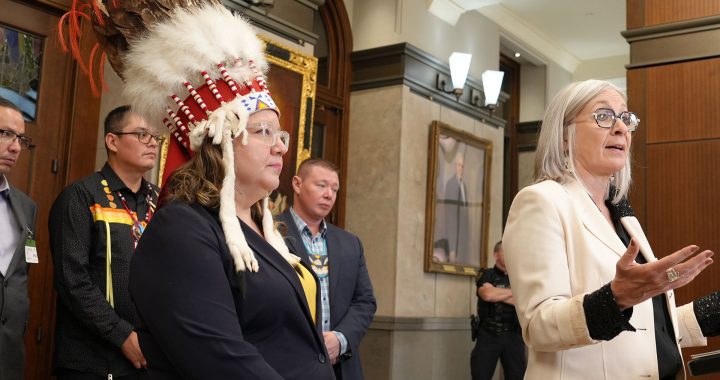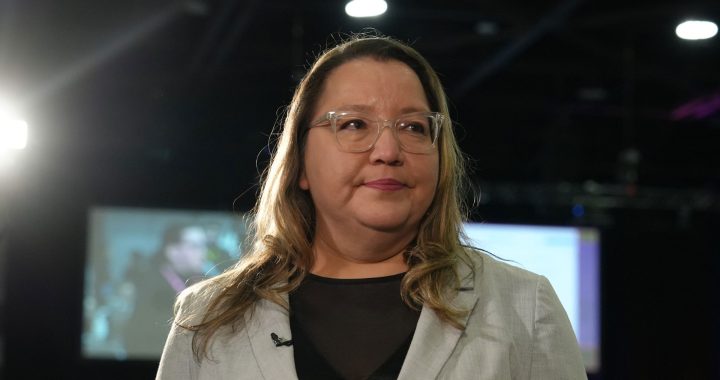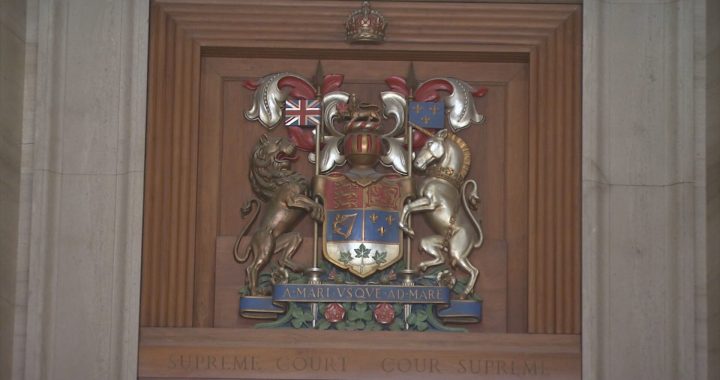Rose LeMay joined host, Annette Francis for the season opener of Nation to Nation, where she talked about the Manitoba election and what the historic win for NDP leader Wab Kinew could mean for Indigenous Peoples.
“I see that Canadians were voting for the inclusion of even Indigenous Peoples and so I think it’s historic, not only for a Wab Kinew and who he represents and being Anishinaabe but also because Canadians actually (voted) for the inclusion of Indigenous peoples and that is truly historic,” said LeMay, who is Tlingit from the West Coast and the CEO of the Indigenous Reconciliation Group. LeMay also writes articles for the Hill Times, a publication that covers federal politics.
LeMay said Kinew’s influence could go a long way to potentially increase the Indigenous vote in all elections and to give Indigenous youth hope for the future.
She said the election is a sign that there is a readiness to create real change towards reconciliation.
“I wouldn’t be surprised if Wab Kinew officially, for example, searches the landfill as his very first official decision.”
Minister of Indigenous Services Patty Hadju also joined Nation to Nation for an update on a number of issues, including First Nations drinking water.
She said, over the past eight years, a majority of the water advisories on First Nations have been lifted.
“There’s about four per cent more to go. There are 28 boil water advisories left and many of those are under construction, she said.”
Hadju said she hopes to table First Nation water legislation soon. She said it has been co-developed with the Assembly of First Nations and former chiefs who’ve been a part of the First Nations Advisory Committee.
“It will protect the rights of Indigenous people to have clean water on First Nations and to control how that water is delivered,” said Hajdu. “It will also strengthen protections of First Nations to ideally understand the quality of the water coming into the First Nation.”
Earlier this month, Treasury Board Minister Anita Anand asked all the federal departments to find $15 billion dollars in savings by Oct. 4 – Hadju said she is working closely with her team.
“With some automation, innovation would result in better services for Indigenous people and for Canadians,” she said. “I’m thinking of areas where people have routinely expressed frustration in terms of the speed of getting status card renewals, for example, or the astronomical increase of Jordan‘s principle requests. And is there a way that we can be more efficient and get people to assess the money they need while also looking for ways to reduce some of the redundancy.”
With just two months into his job, the new minister of Crown-Indigenous Relations, Gary Anandasangaree, said he had the opportunity to meet with many First Nations leaders and community members from coast to coast to coast.
“I’ve found it to be an incredible experience, trying to understand a deeper sense of the injustices faced by Indigenous people, but also recognizing the important work that lies ahead,” he said.
Currently, Bill C-29, the Act to establish a National Council on Reconciliation, is making its way through the Senate. There were many concerns from Indigenous leaders that the council is not representative enough.
“Of course, the senators will have a robust discussion on what they feel needs to happen. We believe that Bill C-29 was brought forward with an enormous amount of consultation and engagement and we look forward to its passage and feedback from the Senate on what the next steps ought to be,” he said.
Meanwhile, Bill C-53, the Métis self-government legislation, has created a stir amongst First Nation leaders in Ontario. In September, Chiefs of Ontario held a rally on Parliament Hill to protest it. Many don’t see the Métis Nation of Ontario as a legitimate organization and think the government erred in recognizing it.
“I believe the process we have, which is the community process will ensure that those voices are heard and any shortcomings that may be there, can be corrected. But on a foundational level this is really a self-government framework agreement and doesn’t bestow additional rights, whether it’s treaty or other on to the Métis,” he said.












